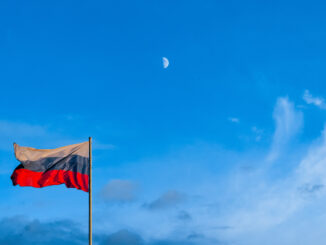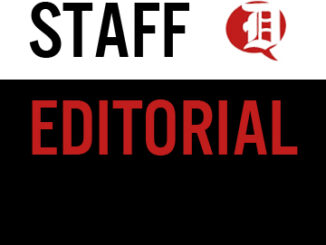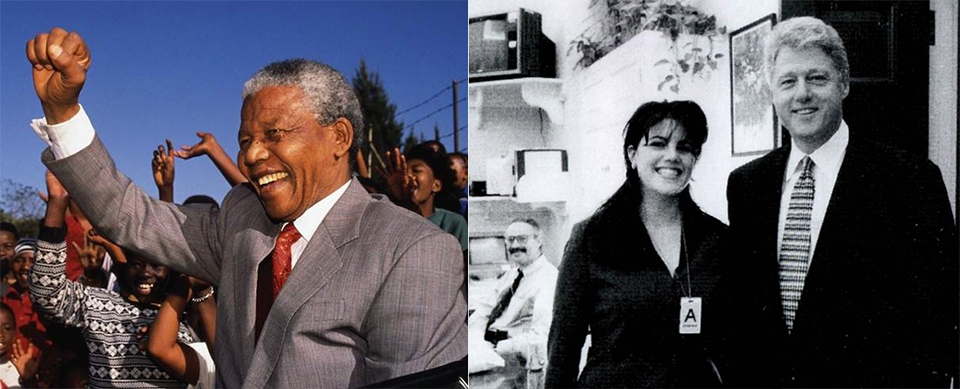
by Zachary Petroff | staff columnist
March 3, 2022
Russia’s aggressive invasion of Ukraine highlights two very disturbing realities that display a level of woeful ignorance rooted with misguided machismo.
There are factions of this country, who also happen to land on a certain political spectrum that have expressed a certain level of affection for Vladimir Putin, likening the former Komitet Gosudarstvennoy Bezopasnosti (KGB) operative as a bare chested John-Wayne type.
Those romanticizing the dictator seem to conveniently forget the atrocities that have occured during his tenure. As trademark signs of a ruthless authoritarian, he has murdered poltical dissidents, journalists and protestors; laundered illegal money, lied to the world stage about his actions, utilitzed repressive tactics against campaigns of free speech, murdered members of the LGBTQ+ community, among other atrocities.
There also seems to be a forgetfulness of Putin’s attempts to provoke or aggressively undermine American institutions. The most relevant and recent evidence of this is the 2016 election. Often blurred by political rhetoric, what is often lost is the rudimentary fact that the Russian government — headed by Putin — made a serious attempt to disrupt and influence a free election. In every measurable way this is an affront to our democracy. The significance of these actions are often glossed over.
Because there was not a big bomb or a lot of dead bodies, Americans failed to comphrend the severity of another country’s boldness to attempt to disrupt an American institution. Putin has done more to undermine American democracy than Osama Bin Laden.
He is also a billionaire, and we all know how Americans have an obnoxious fascination with billionaires.
The affection for Putin is a painful reflection that our functioning guidelines of morality are often skewed by public perception — and our poor grasp of geopolitics.
However unlikely, the second disturbing talking point is the call for American military intervention: We are not at war. Nor should we be. Military intervention should (always) be the very last resort.
Foreign policy is a slow moving wheel often layered with historical precedent and overlooked cultural subtleties and nuance. There is a complexity when it comes to geopolitics that includes, but is not limited to, factors such as language, historical context, religious values and other words and concepts that have been repeated in every upper-level history class ever.
We have a hard enough time understanding our fellow Americans. Trying to comprehend and understand parts of the world that most of us can’t find on a map can be exceptionally challenging.
The United States and Russia continue to have an adversarial relationship. As the dust from the Berlin Wall begins to settle on the landscape of history, the unraveling residual consequences of the Cold War have yet to be revealed.
The relationship between Ukraine and Russia is a complicated one. Ukraine is in its infancy of democracy and is facing an obstacle often accompanied with the beginning stages of stabilizing a republic. Placing sanctions on Russia while not engaging militarily is a viable and reliable option for the American government. The application of these strategic sanctions is the most effective way to inhibit Russia’s aggressive state.
From a global perspective, the decision to invade Ukraine remains unclear. On the surface, the immediate benefits of invading a democratic country outweigh the repercussions. Putin, like any stereotypical mob boss, has let personal vendettas persuade his judgment.
Putin is an enemy of the United States. His actions and words have shown those paying attention that he believes the success of Russia is reliant on the downfall of the U.S.. The Ukraine invasion is a prime opportunity to enact a fierce and devastating coalition to cripple the power, and more importantly, the credibility of Putin.
The U.S. has a responsibility to lead the world in applying dominating sanctions that freeze assets and prevent Russia from participating in the global economy. As they did with FIFA, the U.S. should lead the charge in seizeing any illegally laundered funds, a tactic that the Russian government has not only relied on but has perfected in the past decade.
Let Europe be in charge of holding Putin accountable for this unethical troop movement.
Instead of sending our children to fight another war — where the United States is posting an 0-3 record in their last three violent skirmishes — we should have those who have high stakes in the global market face some minor inconvenience as we use tactical economic sanctions to stop an overreaching and dangerous authoritarian leader.



